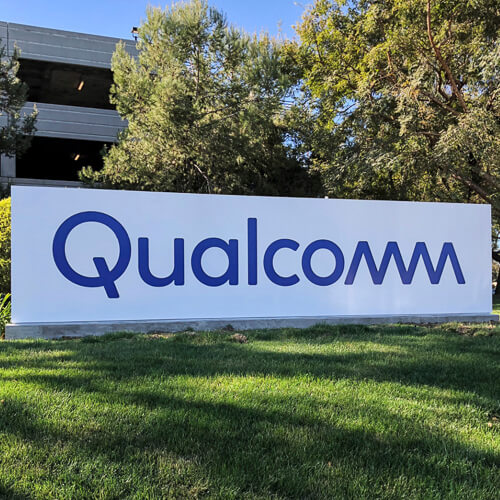
Qualcomm's core business revolves around designing and selling the chipsets that power some of the cellular industry's most prominent and capable phones. That's why it warned Wednesday of a $0.20 reduction in earnings per share in its current quarter, which sent Qualcomm's shares down by almost 4% in after-hours trading.
Qualcomm now expects its smartphone sales to fall 5% this year, compared with its prior expectations of flat growth, according to the company's CFO, Akash Palkhiwala, as reported by Reuters.
Figure 1:  (Source: Qualcomm)
(Source: Qualcomm)
Qualcomm isn't alone in expecting a smartphone slowdown amid rising global inflation. For example, research firm Gartner last month predicted that overall phone sales will fall 7.1% this year. Similarly, research firm IDC predicted a 3.5% decline in smartphone shipments during 2022.
The Galaxy's bright side
However, Qualcomm offered up two critical data points for investors to chew over as they digest the company's recent earnings report and new financial forecast.
First, the company announced a massive new agreement with Samsung, the world's largest smartphone maker, according to Counterpoint Research. The agreement calls for Qualcomm to supply its Snapdragon chipsets for Samsung's top-line, Galaxy-branded devices. Separately, the companies also extended their existing patent-license agreement to cover 3G, 4G, 5G "and upcoming 6G mobile technology" through the end of 2030.
Qualcomm CEO Cristiano Amon told The Wall Street Journal (WSJ) that his company's new agreement with Samsung could potentially blunt any ramifications the company might face if iPhone vendor Apple shifts away from Qualcomm's chips. Apple is widely believed to be developing its own 5G chipset technology, following its purchase of Intel's 5G modem business in 2019 for $1 billion, in order to reduce its reliance on Qualcomm's products. Apple is scheduled to report its own earnings later this week, and analysts expect an inflation-related drop in iPhone sales.
"One Galaxy represents more revenue and earnings in five iPhones to Qualcomm on the chip side," Amon told WSJ. "So it's a great trade."
Diversifying toward growth
The second important point for Qualcomm is that early indications appear to show that Amon's diversification strategy is succeeding. Implemented shortly after he took Qualcomm's top leadership spot, the company is currently working to expand beyond smartphone chips and into silicon for all kinds of electronics, from cell towers to automobiles to drones.
"The weakness we see in consumer [phones] has been offset by the diversification strategy of the company and the focus on premium and high-tier handsets," Amon said, according to Reuters.
Indeed, WSJ noted that Qualcomm's Internet of things (IoT) business division generated $1.8 billion in sales in the company's most recent quarter, up 31%. Its automotive business grew 38% to $350 million. However, Qualcomm still makes more than half of its revenues from phones.
Related posts:
— Mike Dano, Editorial Director, 5G & Mobile Strategies, Light Reading | @mikeddano
About the Author(s)
You May Also Like











